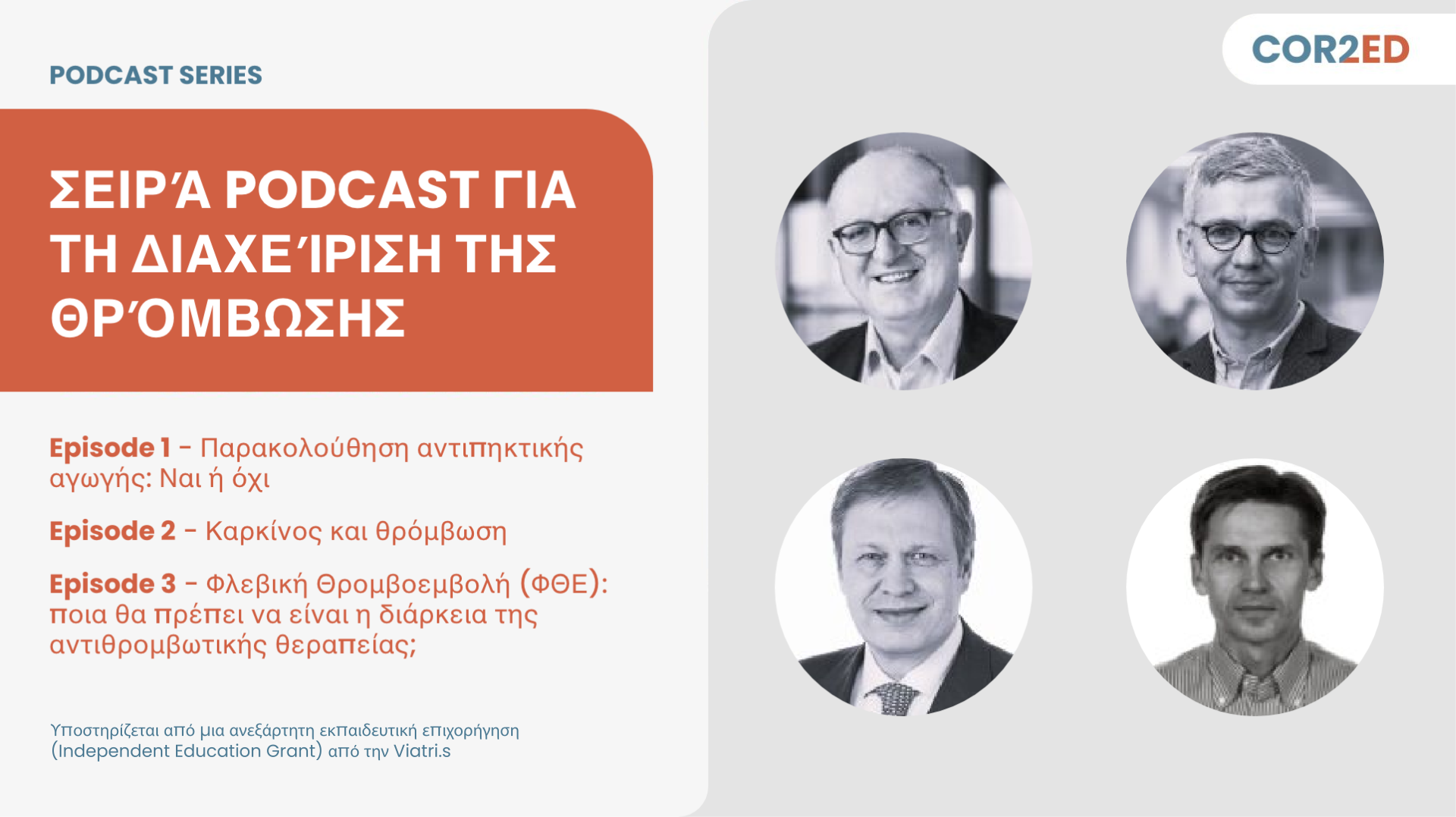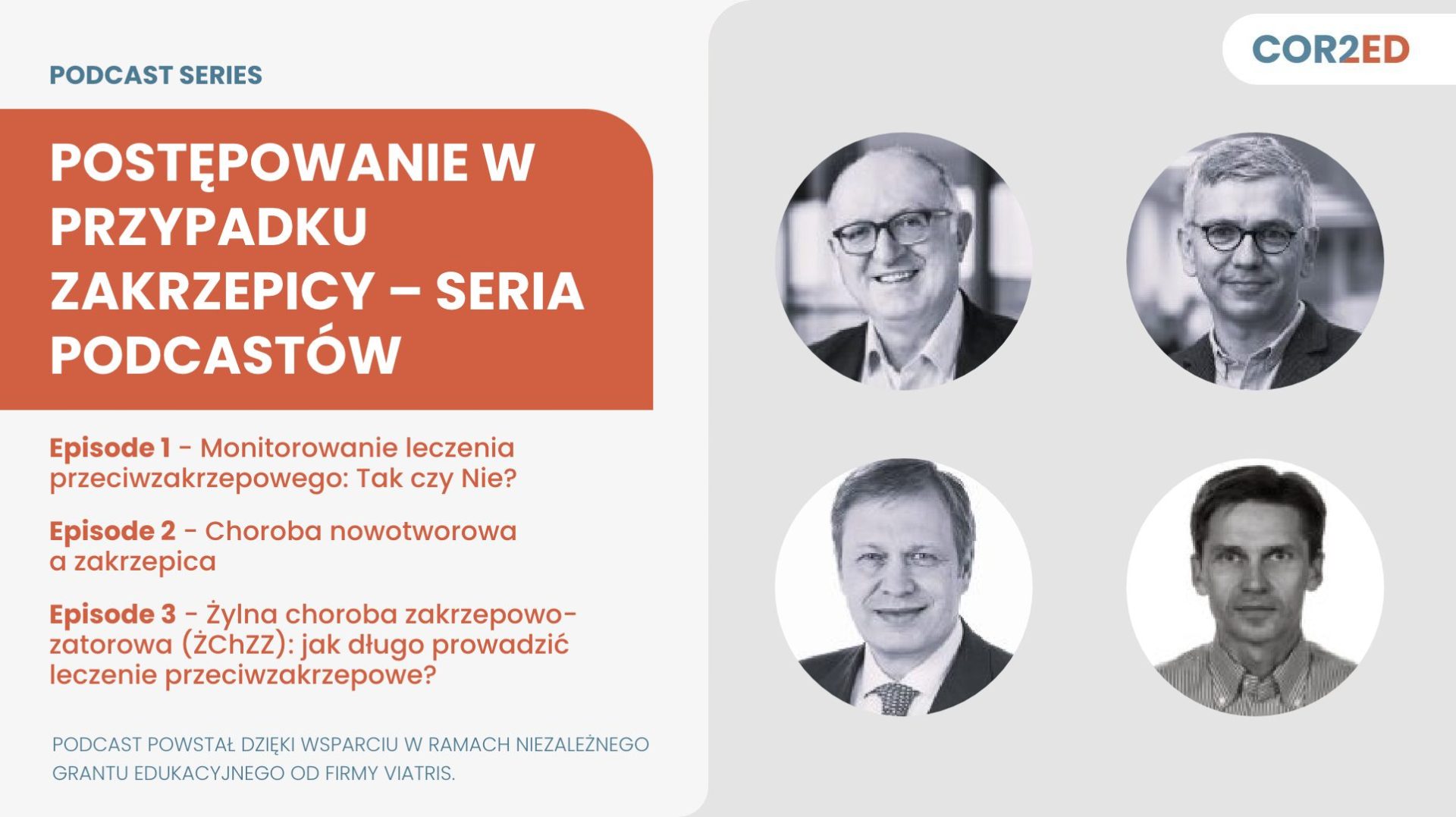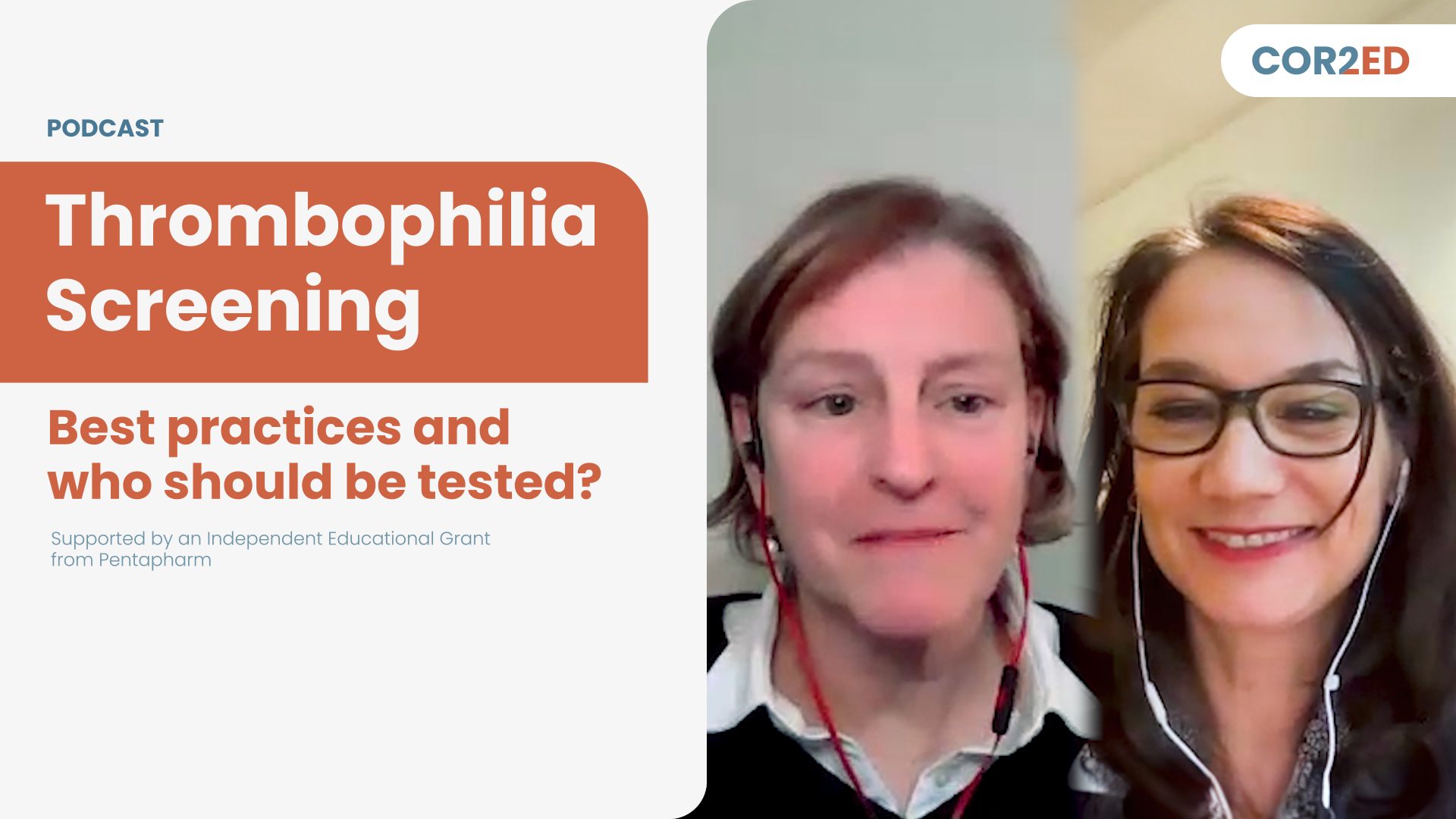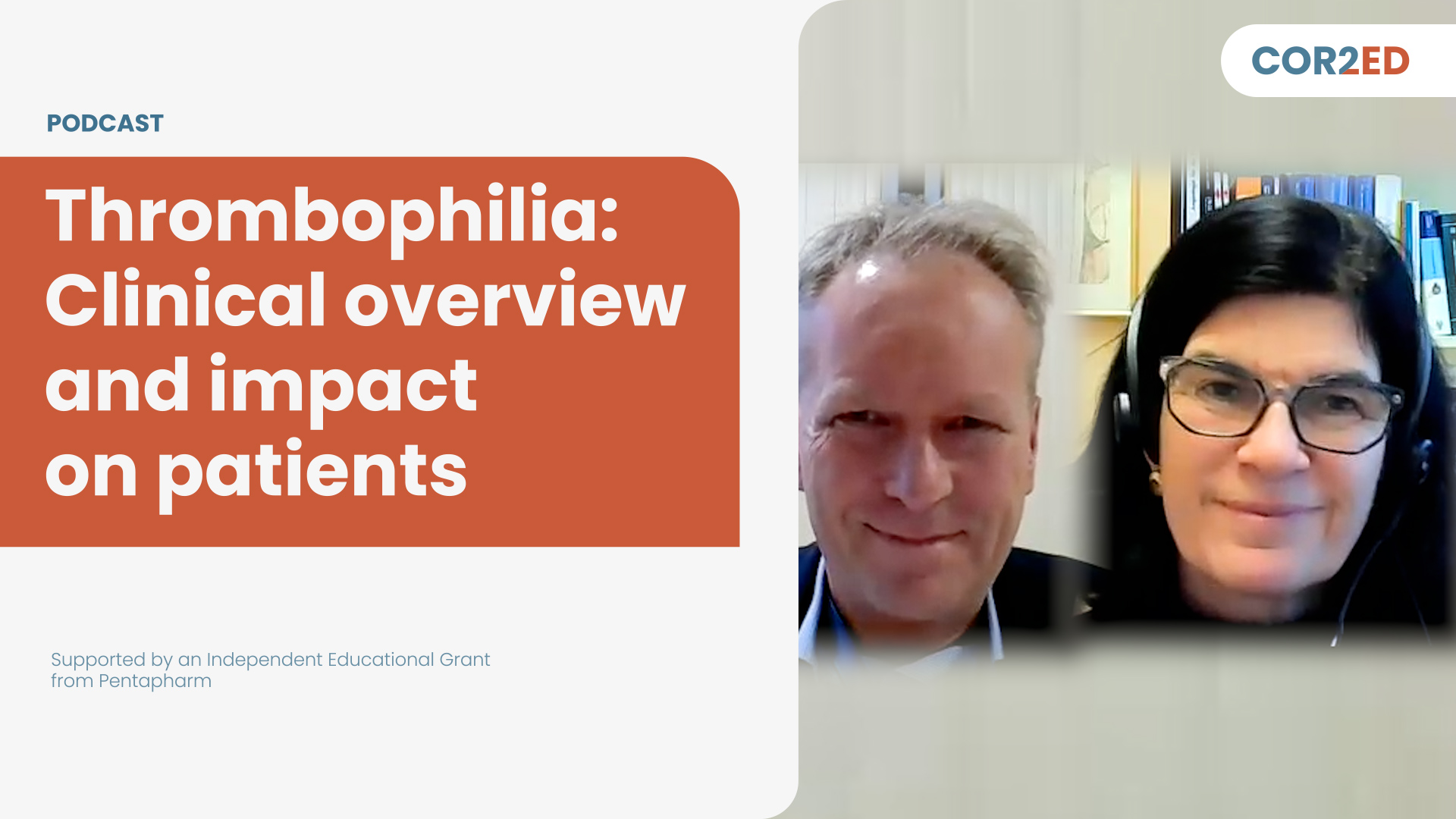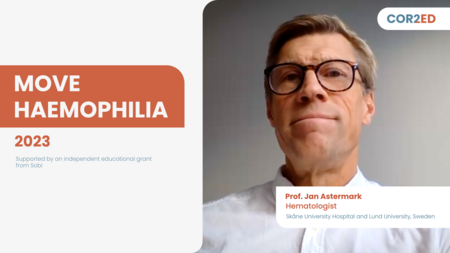What to Expect When They’re Expecting: Bleeding Disorders & Pregnancy
A HEMOSTASIS CONNECT podcast
Please note:
HEMOSTASIS podcasts are designed to be heard. If you are able, we encourage you to listen to the audio, which includes emotion and emphasis that cannot be grasped from the words on the page. Transcripts are edited for readability. Please check the corresponding audio before quoting in print.
HEMOSTASIS CONNECT is an initiative of COR2ED. This podcast is supported by an educational grant from Takeda. The views in this podcast are the personal opinions of the experts. They do not necessarily represent the views of the experts' organisation or the rest of the HEMOSTASIS CONNECT group. For experts' disclosures on conflict of interest, please go to Hemostasis on www.COR2ED.com.
Debra Pollard
Hello and welcome to this podcast. I'm Debra Pollard, an advanced nurse practitioner in haemophilia and bleeding disorders from the Royal Free Hospital, London.
Prof. Rezan Abdul-Kadir
Hello, I am Rezan Abdul-Kadir. I'm a professor and consultant obstetrician and gynaecologist at the Royal Free Hospital in London. And today in this podcast, we will discuss the impact of bleeding disorders before, during and after pregnancy and delivery.
So, Debra, I would like to ask you, from your experience running a multidisciplinary team service and clinic for women with bleeding disorders, what are the views of women as they prepare to become pregnant and what are their expectations and perception of the risks and challenges facing them?
Debra Pollard
So, I would say that in my experience, there's an overwhelming anxiety for women with bleeding disorders around: will I become pregnant? When I am pregnant, what are the risks and challenges? And then particularly around labour and delivery, and these tend to be two-fold: they worry for themselves and their bleeding risk, but they very, very, very much worry for their baby.
And it's in the background of what family history do they have. So, if they have a family history of a bleeding disorder, they may well have heard apocryphal stories from other members of the family that we can quite easily, actually, put into perspective of 21st Century multidisciplinary care for women with bleeding disorders.
When we look at their expectations, I think that the most important thing is information. The more information and conversation we have with these women about realistic outcomes, realistic events during pregnancy, labour and delivery, then I think we are able to contain their anxiety and to develop the relationship, the professional relationship needed to go forward in what is really a complex management plan.
Rezan Abdul-Kadir
Well, I completely agree with you, Debra. They come with a lot of anxiety and fear. They are worried not only about themselves, but also about passing the bleeding disorder to their babies and the risks during childbirth and later on. And as you know, we've been running regular pre-conception sessions for counselling and assessment of these ladies. And that is very helpful to prepare them and not only them also prepare us healthcare professionals to know how we best manage them and start the management as soon as they are pregnant.
We discuss this topic gradually with them. As we see them, they are becoming a young girl and after menarche and when they are deemed to be ready to become pregnant. But we specifically arrange preconception sessions with them where we review their diagnosis, confirm the diagnosis, so that we have better information of what risks are facing them and their babies.
We also look at whether they have genetic testing because that is important and especially relevant in some conditions such as haemophilia or severe bleeding disorders. And during this session, we can discuss with them what would be the bleeding risk for them, what is the inheritance, what are the risks for the baby to be affected and what are the bleeding risk and how would we manage them.
Of course, this is also an opportunity to discuss issues about reproductive options for them, such as preimplantation genetic diagnosis or prenatal diagnosis.
So Debra, I think we should also not forget sometimes the father is affected with inherited bleeding disorders, not the mother, what are your considerations for such a situation?
Debra Pollard
When fathers are affected with bleeding disorders, we have to know about the inheritance of the bleeding disorder that he's affected by, because actually where perhaps there is consanguinity in his relationship, we may need to test his sexual partner to ensure that we are fully aware of the risk to any future babies and the risk to the woman herself. So that would be my first instinct.
Historically, people have brushed away men with haemophilia, with: all your daughters will be carriers, all your boys will be normal. That's fine. And actually, it isn't. There's a burden placed upon men with haemophilia about their daughters, who not only will be carriers of haemophilia, but we know at least a third of them will have mild haemophilia or even more severe symptoms themselves.
So, I think that we've moved away from not really discussing in detail with those men. I think all men with bleeding disorders need to have similar discussions to women with bleeding disorders about their risks of passing on their disorder and what that means for them and for their partner. And again, I go back to that opportunity to invite partners into the conversation as well. I think it's very important that both partners hear that conversation. But as healthcare professionals, that we accept that we are assessing risk, both for the individual affected by the bleeding disorder and for their potential children.
Rezan Abdul-Kadir
May I also add, Debra, for some rare bleeding disorders and also severe bleeding disorder with the father affected it could be the inheritance is autosomal so the baby could be affected with a severe disorder. And that is quite important. And we always bring the couple and discuss with them, to minimise the risk for the baby if the baby is affected, especially in relation to how we deliver the baby.
Debra Pollard
Rezan, once the woman with a bleeding disorder is pregnant, what do you as an obstetrician expect from the pregnancy? Are there specific risks?
Rezan Abdul-Kadir
So yes, as an obstetrician, we have to assess those for the mother and the baby. And we know that because of the coagulation defect, the risk is mostly a bleeding risk. The mothers are at risk of a bleeding complication and most important is primary postpartum haemorrhage. And for most bleeding disorders, there is no additional risk of bleeding during pregnancy.
And for the baby it is also bleeding risk during delivery and childbirth if the baby's affected with a bleeding disorder. So as obstetrician, as part of the multidisciplinary team, it's our role is to assess these risks and plan accordingly.
Debra Pollard
I think I would just pick up there on that plan, and the idea of preterm delivery and very much that the plan must be held by the woman as well as distributed among the healthcare professionals. Because of course, babies don't always come when or where we want them to come. And if a woman should go into preterm labour a long way from her registered haematology service, we would want as much information quickly available to the team looking after her.
And I think that the important thing to get across really here is that, although we expect factor VIII and von Willebrand Factor to rise, and for those who may be carriers or be affected by haemophilia A or von Willebrand disease, only in type one von Willebrand disease will we see a significant rise in effective von Willebrand factor. And for carriers of haemophilia B or women affected by haemophilia B, there is no rise in the Factor IX. We wouldn't expect a rise, for example, in the Factor XI level.
So really, we must treat each individual bleeding disorder as its own entity. Have no expectations, because I think that you and I have both seen differences in what is expected along the way, and very importantly, have both a first trimester and a third trimester level available to make that final plan for delivery.
And where necessary, and we have considered this in the past and made it available, where necessary perhaps a woman should even carry clotting factor concentrate in that very last part of pregnancy if she's a long way from accessing routine haematology care. And it is just in case that she can bring it with her. But again, a sudden unexpected delivery in a hospital without experts, at least they would have it to hand.
And I think the message in all of our multidisciplinary care planning is: call us. We want to be called any time, any time day or night. If we can't be with you, we want to be able to guide people through.
Rezan Abdul-Kadir
Absolutely. And we have developed over the years a close liaison with the local maternity team. We almost share this care with the local maternity units because many of these women live far away from the haemophilia treatment centre.
Also, one of the things that must be decided is where the woman should deliver. As you know, we make that in the plan because for women with mild bleeding disorder, where the baby is also not expected to have a severe bleeding disorder, she could have the delivery in her local maternity hospital with a close collaboration with us. We're always on the phone with them discussing the plan, and we will be accessible if they have any questions during the course of labour and delivery.
Debra Pollard
Rezan, I think you’ve already talked a little bit about the expansion of the multidisciplinary team to include the anaesthetist, for example. I would say that we include in our multidisciplinary team genetic counsellors. They can be full-time genetic counsellors or the haemophilia psychologist or psych counsellor. I know in the US it would be the social worker for example.
The anaesthetist very important. And of course, you actually have a genetic midwife don't you? Who sees the patients that perhaps need a little bit of extra support through pregnancy.
And then when we are thinking about delivery, from an obstetricians point of view, can you tell me what you would expect to need on hand and what you would be looking for during delivery?
Rezan Abdul-Kadir
So, the obstetric management, I would divide it into two aspects, the maternal aspects and the foetal aspects. So, for the mother, the aim is to minimise risk of bleeding complications and provide her with the birth that she is satisfied with and happy. And the plan will be to look at her bleeding risk, look at her obstetric risk factor. It’s not only the inherited bleeding disorder, because this mother could have any obstetric complication like any other mother, such as preeclampsia, diabetes, they could have a placenta praevia, or other obstetric complications. So that should be considered and managed according to the obstetric plan.
And also, we provide a plan to minimise the risk of postpartum haemorrhage because we know this is the most important risk for these women. The commonest cause for postpartum haemorrhage is uterine atony. Yes, of course, women with bleeding disorder, their coagulation defect could increase their risk. But if we correct the coagulation defect, we must also ensure that other obstetric factors are also prevented. And preventing atony is practiced all over the world with the use of active management of third-stage labour, where placental delivery is controlled with the use of prophylactic uterotonics to prevent or minimise the risk of postpartum haemorrhage.
The other aspect of obstetric care is to ensure less traumatic delivery to the mothers and quick surgical repair. If it's a caesarean section, an experienced obstetrician who has knowledge of managing women with bleeding disorders should be performing this procedure.
From the baby's point of view, then we have to ensure that we are minimising risk of bleeding during birth because babies with bleeding disorders, especially severe bleeding disorders or just such a severe haemophilia, we know they are at risk of bleeding, especially cranial bleeding during the process of birth, especially if the birth is prolonged labour or difficult delivery, especially with an instrument and specifically with ventouse extraction.
So based on the risk of the baby, we plan what would be the mode of delivery, of course after discussion with the mother, and how would the delivery be managed to minimise the risk for mother and the baby.
But may I ask you also, Debra, what would be the management from the haemostatic point of view to minimise the risk for the mother and the baby?
Debra Pollard
So, of course, this, again, depends on which is the bleeding disorder that we're caring for. For many women tranexamic acid would be absolutely enough to get them through labour and delivery. But where there is a more severe bleeding disorder, there needs to be a very careful plan. And I would just say that where resources may be limited, you may want to perhaps plan to administer clotting factor concentrate much closer to delivery. Where resources aren't as limited, we might perhaps go in with clotting factor concentrate earlier in labour with the knowledge that we may have to repeat doses. So that would be for the local haematology team to specifically prescribe. I think that we have to have those products ready, available to the staff on the labour ward, not just available to the haematology staff, and an understanding of who will administer and how they will administer them and also when.
For example, desmopressin is a very helpful pharmaceutical agent for women with von Willebrand disease or women with a low factor VIII level. And we can administer that. We would prefer perhaps to administer that just after delivery, although we have administered it during labour successfully. But then we are in the realms of having to manage the amount of intravenous fluids that are administered to the woman. If she has had desmopressin she would need to be fluid restricted, which is very difficult to manage, is my understanding from my obstetric colleagues, in the immediate delivery and postpartum period. So, these things have to be balanced and that's why the communication between the multidisciplinary team is just so important.
I think also from my perspective, when we see the woman at 34 weeks, we could prescribe her postpartum tranexamic acid tablets at that point for her to take home, to keep at home, because inevitably it's one of those things that might get forgotten at the discharge after delivery. Everybody's very happy. She's got through her delivery without the major postpartum haemorrhage. The baby safe and well. They all just want to go home. And if she already has the tranexamic acid at home, we've already covered that risk and she can take it certainly for the first 10 to 14 days, but we would advise that she takes it until the lochia is reduced right down, because we know in women with bleeding disorders that not just is there a risk of primary postpartum haemorrhage, but actually the risk of persistent, prolonged bleeding after delivery. And that really is aided by the use of tranexamic acid. Would you agree Rezan?
Rezan Abdul-Kadir
Oh, absolutely. haemostatic treatment is very important, and it should not just be for labour and delivery, should extend beyond to the postnatal period.
From an obstetric point, I think I could summarise that the mode of delivery should be discussed with the mother, pros and cons of caesarean section versus vaginal delivery, again based on the type and severity of bleeding disorder that the baby could have.
And if the vaginal delivery is planned, it should be a careful monitoring, avoiding prolonged labour, avoiding difficult instrumental delivery, especially ventouse extraction. Although in babies affected with mild bleeding disorders, perhaps low forceps delivery that's conducted by an experienced obstetrician is less risky than doing a difficult caesarean section when the head is deeply engaged in the pelvis. So, it's all about planning and discussion with the mother and also involving all the professionals who would be managing the care during labour and delivery.
Because again, we know, Debra, that labour could happen at any time, mostly middle of the night, and all involved should be familiar with the risks for the mother and the baby.
Debra Pollard
And I'd just like to add, Rezan, actually, that because of all these plans that we have in place, I'm very proud to say that we have had no major obstetric incidents relating to women with bleeding disorders in our practice and the plan is generally very well adhered by everybody that comes across women with bleeding disorders.
Rezan Abdul-Kadir
Absolutely. And also, another part of the plan is whether the baby needs cord blood taken. And this is especially important if we expect the baby to have a severe bleeding disorder. We are very lucky in our centre that we have a paediatric haematologist who is involved with the care. But if it is not on site, a healthcare professional should always liaise with the paediatric team to ensure that the baby is looked after.
Some mothers, as you know, hope to have a circumcision for their male babies. That's always part of our discussion, whether circumcision can be done, how can it be done, whether babies need tranexamic acid in case of mild bleeding disorders. And we have always liaised that with the parents and whoever conducting circumcision. But in severe bleeding disorders we ensure that is not performed until the diagnosis is confirmed and appropriate haemostatic cover is planned for the baby.
Debra Pollard
So I think that's another example of the widening multidisciplinary team involved in care of women and babies with inherited bleeding disorders.
And is there anything from the woman's point of view that we should be particularly aware of in the postpartum period?
Rezan Abdul-Kadir
Yes, I think the postpartum period is also a very important period to watch because as you know, Debra, the clotting factor that's already arisen in those examples you mentioned, carriers of haemophilia and mild to moderate von Willebrand disease, also start declining after delivery from day 2 to 3 and by day 7 the woman is at risk again of secondary postpartum haemorrhage when she is already discharged from hospital. And if we don't provide tranexamic acid, as you mentioned, and counsel the mother about this risk, then many women could suffer haemorrhage and come as an emergency or many more will have just prolonged blood loss, which we in obstetrics call lochia, for a long period of time. And that causes more iron deficiency anaemia.
Other aspects of postnatal care is also warning the mother about her baby if we expect the baby has a bleeding disorder. What are the signs and symptoms of that? Give her a contact number to contact in any case or when she has any suspicion or if there is a trauma or surgery to liaise with the haemophilia treatment centre so that the baby is looked after appropriately.
Debra Pollard
I agree completely. One of the things I find with mothers is the minute a baby is born, she forgets about herself, and she focuses all of her attention on her baby, which is fantastic. And it also comes back to the thing we know about women with bleeding disorders and what is normal in a family. And again, with this lochia, this prolonged bleeding out past 4 to 6 weeks, if she turns to her mother and she turns to her sister or she turns to her aunts, and they all have bleeding disorders too, they may well reassure her that this is normal. And actually, we want to stop that bleeding. We want to encourage her to come back to us and we want to prevent the iron deficiency, because we want her to be as well as possible to look after her baby. So, I think that this constant counselling that we do through pre-pregnancy, pregnancy and beyond is very important. And it affects the care of both the mother and the child.
Is there any other monitoring Rezan that you think is particularly different? Do you think that there is specific monitoring that should be done in women with bleeding disorders? Or with a good plan in place can we avoid extra monitoring and extra hospital visits?
Rezan Abdul-Kadir
As you mentioned earlier, mothers should be given individualised care. And that is the most important because there are mothers and we have managed many with very severe bleeding disorders that need additional care. We talk to them at least on a weekly basis. They need factor concentrate during pregnancy. If they have obstetric complications, they need the obstetric team looking after them.
While we have managed many women with mild von Willebrand disease, for example, with no additional visits. And if the multidisciplinary plan and team involvement is in place, I think we can, and we have demonstrated that in our centre we are proud to say that there we can minimise the risk for the mother and the baby.
If I want to summarise what is the best management for these women during pregnancy and delivery, it's the emphasis or multidisciplinary involvement and advance planning and also involvement of the mother in the planning so that she is well informed and also satisfied because in addition to the safety, the most important aspect of childbirth is the mother happy and satisfied with her experience.
Debra Pollard
I couldn't agree more on what I would add to that is that we have found a single point of contact within the haemophilia treatment centre throughout pregnancy and the postpartum period that the woman knows she can contact has been very helpful in allaying the anxiety, allaying the fears, and actually being the point of communication throughout the multidisciplinary team.
So, I think Rezan, we've really had a lot to discuss today, and I would thank you very much and I hope that everybody takes something away that's really important in the care of women with bleeding disorders.
Rezan Abdul-Kadir
Thank you so much, Debra. It's always a pleasure to talk to you. And it's been a really interesting discussion. Thank you very much.

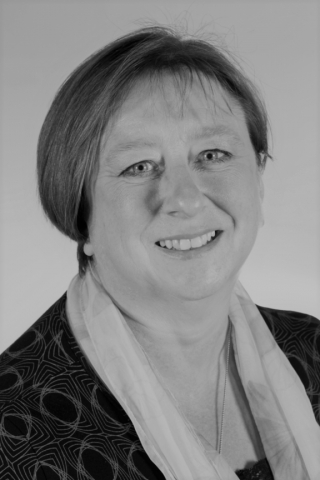


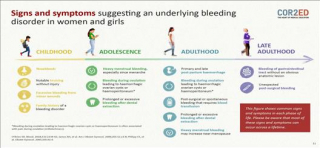

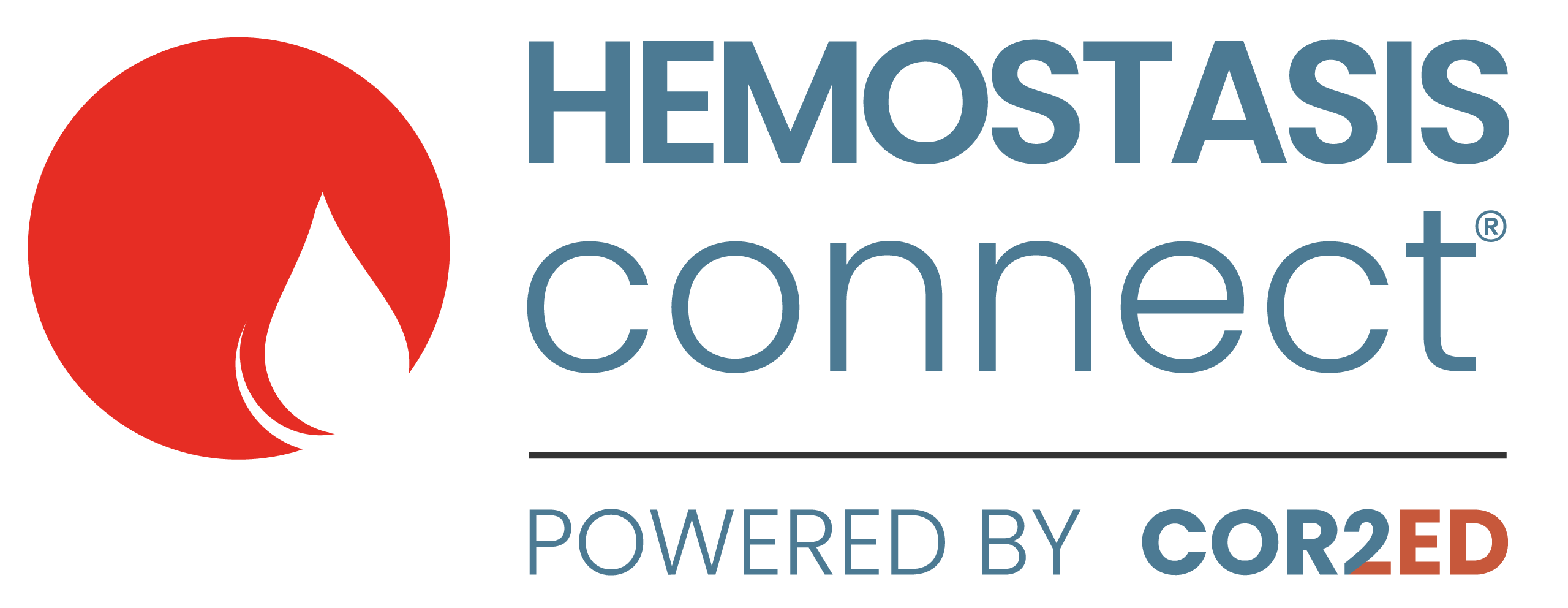
 Downloadable
Downloadable 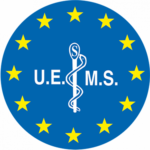


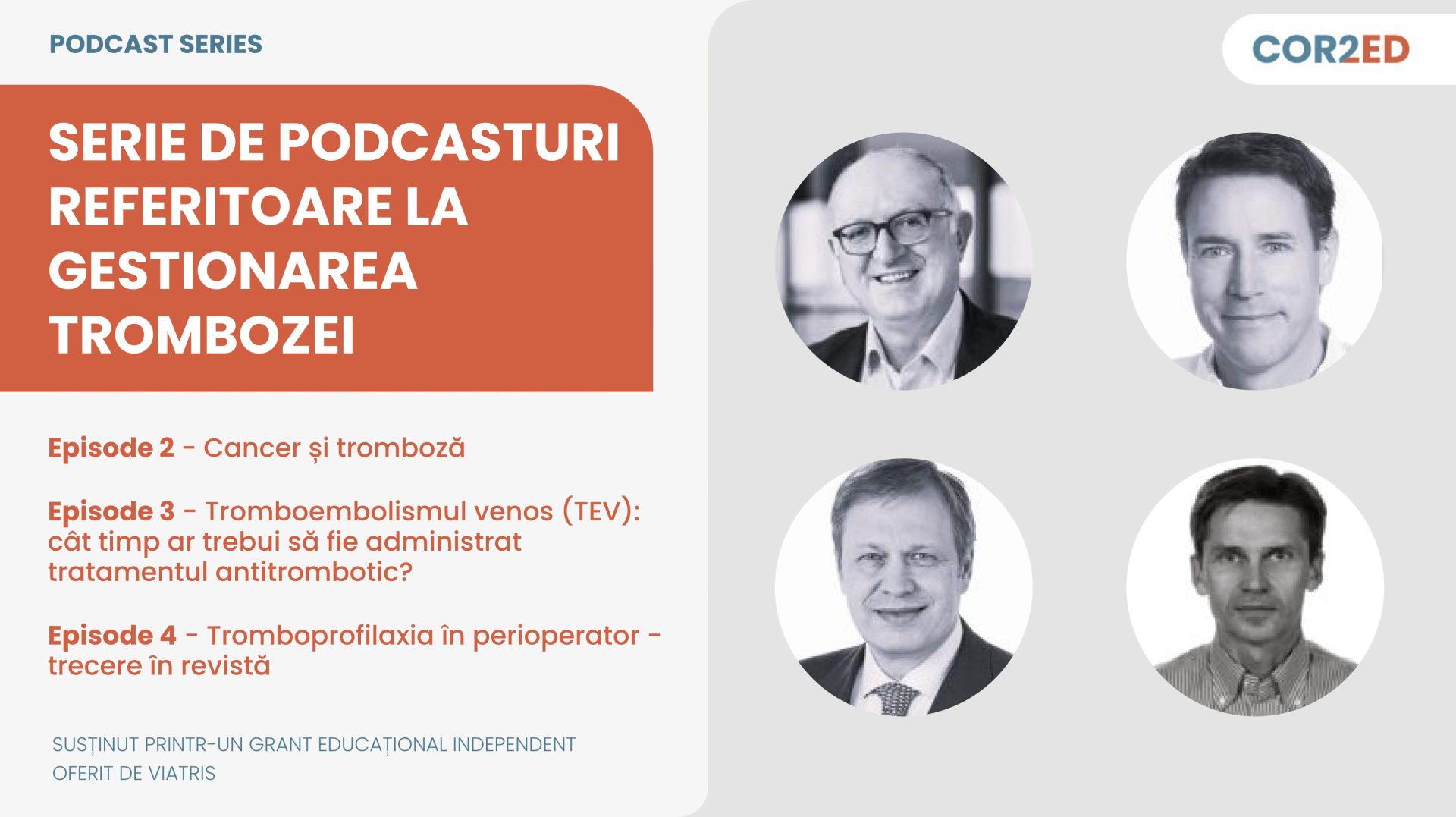
 21 MIN
21 MIN
 May 2025
May 2025 